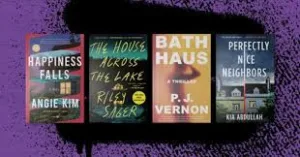News
The Benefits of Reading Across Different Genres: Expanding Your Horizons and Mind
Part 1: Understanding Genres and Their Unique Value
Reading is a multifaceted experience, offering more than just a means of entertainment. One of the most powerful ways to enrich your reading life is by exploring different genres. Each genre brings its own unique flavor, style, and perspective, shaping the way we think, feel, and interact with the world. By understanding the value of various genres and embracing their diversity, readers can develop a richer, more nuanced appreciation for literature while gaining cognitive, emotional, and cultural benefits.
Genres act as windows into different worlds, eras, and viewpoints. Fiction immerses readers in imaginative realities, allowing them to explore human experiences in ways that transcend time and place. Nonfiction provides factual knowledge, offering insights into real-world events, cultures, and concepts. Poetry distills emotion and thought into evocative language, fostering deep reflection and appreciation for the artistry of words. Memoirs reveal personal stories and lived experiences, connecting readers with lives that may be profoundly different from their own. Each genre not only entertains but also educates, inspires, and transforms readers in subtle and significant ways.
1. Fiction: Exploring Human Experience and Imagination
Fiction, the art of storytelling, has captivated humans for centuries. From timeless classics to contemporary novels, fiction allows readers to step into the shoes of characters, experiencing joys, struggles, triumphs, and failures vicariously.
-
Imagination and Creativity: Fictional worlds stimulate the imagination. Fantasy and science fiction, in particular, transport readers to otherworldly realms or futuristic landscapes, encouraging creative thinking and expanding the mind’s ability to envision possibilities beyond reality.
-
Empathy and Emotional Understanding: By presenting complex characters and relationships, fiction cultivates empathy. Readers learn to understand diverse perspectives, motivations, and emotions, enhancing their ability to relate to others in real life.
-
Narrative Skills and Critical Thinking: Engaging with plots, subplots, and character development fosters analytical skills. Readers often consider cause and effect, predict outcomes, and interpret subtle nuances, sharpening cognitive abilities.
-
Cultural and Historical Insight: Historical fiction, in particular, combines storytelling with historical context, allowing readers to explore different cultures, traditions, and societal norms, deepening their understanding of human history.
The immersive quality of fiction makes it a cornerstone of literary experience, offering both enjoyment and personal growth.
2. Nonfiction: Learning, Insight, and Real-World Application
Nonfiction encompasses a wide range of books that convey factual information, ideas, and personal accounts. This genre serves as a powerful tool for learning and intellectual development.
-
Knowledge Acquisition: Nonfiction books provide information about history, science, philosophy, and culture. They satisfy curiosity and expand knowledge, making readers more informed and well-rounded individuals.
-
Skill Development: Instructional books, self-help guides, and professional texts offer practical advice and strategies that can be directly applied to personal or professional life. For instance, a book on time management or communication skills can lead to tangible improvements in productivity and relationships.
-
Critical Thinking and Analytical Skills: Nonfiction encourages readers to evaluate evidence, interpret data, and assess arguments. Analytical reading of nonfiction texts sharpens reasoning and decision-making abilities.
-
Perspective and Awareness: Biographies and sociocultural studies introduce readers to different life experiences, enhancing understanding of human diversity and promoting social awareness.
By engaging with nonfiction, readers gain knowledge and insights that can influence thought processes, problem-solving abilities, and practical skills.
3. Poetry: Language, Emotion, and Reflection
Poetry distills human emotion, thought, and experience into concise, often rhythmic language. It challenges readers to interpret meaning and connect with profound feelings.
-
Emotional Resonance: Poetry evokes emotions through imagery, metaphor, and rhythm. Reading poetry can be a deeply personal and moving experience, providing solace, inspiration, or catharsis.
-
Language Appreciation: Poetic language encourages attention to word choice, sound, and structure. Readers develop a heightened sensitivity to language, enriching their own communication skills.
-
Reflection and Introspection: Many poems prompt self-examination and contemplation. Readers explore philosophical questions, moral dilemmas, or existential ideas, fostering personal growth.
-
Cultural and Historical Insight: Poetry often captures the essence of an era or culture, reflecting social norms, struggles, and values. Through poetry, readers can connect with the collective consciousness of different communities.
Though often brief, poetry’s intensity and depth make it a genre that profoundly influences thought, emotion, and creativity.
4. Memoirs and Biographies: Personal Stories and Human Connection
Memoirs and biographies offer intimate glimpses into individual lives, providing readers with narratives grounded in reality.
-
Understanding Diverse Experiences: By recounting personal experiences, memoirs expose readers to perspectives they may not encounter in their own lives, fostering empathy and cultural awareness.
-
Life Lessons and Inspiration: Stories of resilience, success, failure, and growth provide valuable lessons. Readers can draw inspiration and guidance for their own challenges and aspirations.
-
Connection to History and Society: Biographies often contextualize personal stories within broader historical, political, or social frameworks, enriching readers’ understanding of the world.
-
Authenticity and Emotional Impact: Real-life narratives often resonate deeply due to their authenticity. Readers connect emotionally, gaining insight into human behavior and the complexities of life.
Memoirs and biographies bridge the personal and universal, offering experiences that are relatable, educational, and motivational.

5. Fantasy and Science Fiction: Expanding the Imagination
Fantasy and science fiction transport readers to worlds governed by different rules, whether magical, futuristic, or speculative.
-
Creative Thinking: These genres challenge readers to imagine possibilities beyond the ordinary, stimulating creativity and innovative thinking.
-
Exploration of Societal Issues: Through allegory and speculative scenarios, fantasy and science fiction explore ethical, political, and social dilemmas, prompting reflection on real-world issues.
-
Emotional Engagement: Despite otherworldly settings, these stories often feature universal human emotions—love, fear, hope, and courage—allowing readers to connect deeply with characters and narratives.
-
Problem-Solving and Strategy: Complex plots, intricate worlds, and unique challenges in these genres encourage analytical thinking and problem-solving skills.
Engaging with fantasy and science fiction nurtures imagination, emotional connection, and intellectual exploration, making these genres valuable additions to any reading repertoire.
6. Mystery and Thriller: Suspense, Curiosity, and Cognitive Stimulation
Mystery and thriller genres captivate readers with suspense, intrigue, and puzzles.
-
Critical Thinking: Readers often attempt to solve mysteries alongside characters, enhancing deductive reasoning and analytical skills.
-
Engagement and Focus: Fast-paced narratives and cliffhangers keep readers absorbed, improving attention and cognitive endurance.
-
Emotional Excitement: Suspense and tension evoke adrenaline and emotional engagement, providing a stimulating reading experience.
-
Exploration of Morality and Justice: Many mysteries and thrillers delve into ethical dilemmas, justice, and human behavior, prompting reflection and discussion.
These genres combine entertainment with cognitive stimulation, offering both excitement and intellectual engagement.
7. Self-Help and Personal Development: Growth and Motivation
Self-help books focus on improving various aspects of personal and professional life, offering practical guidance and motivational insights.
-
Goal Setting and Achievement: These books provide frameworks and strategies for achieving personal or professional objectives, encouraging proactive behavior.
-
Emotional and Mental Well-Being: Topics such as mindfulness, resilience, and stress management support emotional health and personal growth.
-
Skill Enhancement: Many self-help books teach communication, leadership, or creative skills, directly impacting personal and professional effectiveness.
-
Inspiration and Motivation: Real-life examples and actionable advice inspire readers to take meaningful steps toward improvement.
When read critically, self-help and personal development books empower readers to make positive changes and enhance life satisfaction.
8. Historical and Cultural Literature: Context and Perspective
Historical novels, cultural studies, and ethnographic literature offer insight into past events and societies.
-
Understanding History: Historical literature contextualizes human events, allowing readers to learn from the past and appreciate societal evolution.
-
Cultural Awareness: Exploring different cultures, traditions, and social norms fosters empathy, tolerance, and global understanding.
-
Analytical Thinking: Interpreting historical narratives encourages critical assessment of sources, perspectives, and bias.
-
Connection to the Present: Understanding historical context illuminates contemporary issues, providing depth to current events and social challenges.
Historical and cultural literature bridges the past and present, enhancing knowledge, empathy, and critical thinking.
9. The Value of Exploring Multiple Genres
While each genre offers unique benefits, the greatest advantage comes from exploring multiple genres. Reading across genres:
-
Expands Perspectives: Exposure to diverse narratives, ideas, and cultures broadens understanding of the world and human experience.
-
Enhances Cognitive Flexibility: Switching between genres improves adaptability, analytical skills, and creative thinking.
-
Deepens Emotional Intelligence: Experiencing a wide range of characters, scenarios, and emotions nurtures empathy and emotional awareness.
-
Promotes Lifelong Learning: A diverse reading habit fosters curiosity, intellectual growth, and a habit of continuous exploration.
By embracing the richness of literature across genres, readers develop a holistic, balanced, and fulfilling reading experience.
10. Conclusion of Part 1
Understanding genres and their unique value is foundational for a rewarding reading journey. Each genre—fiction, nonfiction, poetry, memoir, fantasy, thriller, self-help, and historical literature—offers distinct benefits, enriching intellect, emotions, and perspective. Recognizing these values encourages readers to explore beyond familiar territories, cultivating curiosity, creativity, and empathy.
By appreciating the diversity of genres and intentionally incorporating a variety of books into one’s reading practice, individuals unlock the transformative power of literature, creating a reading experience that is not only enjoyable but also enriching, inspiring, and deeply meaningful.


